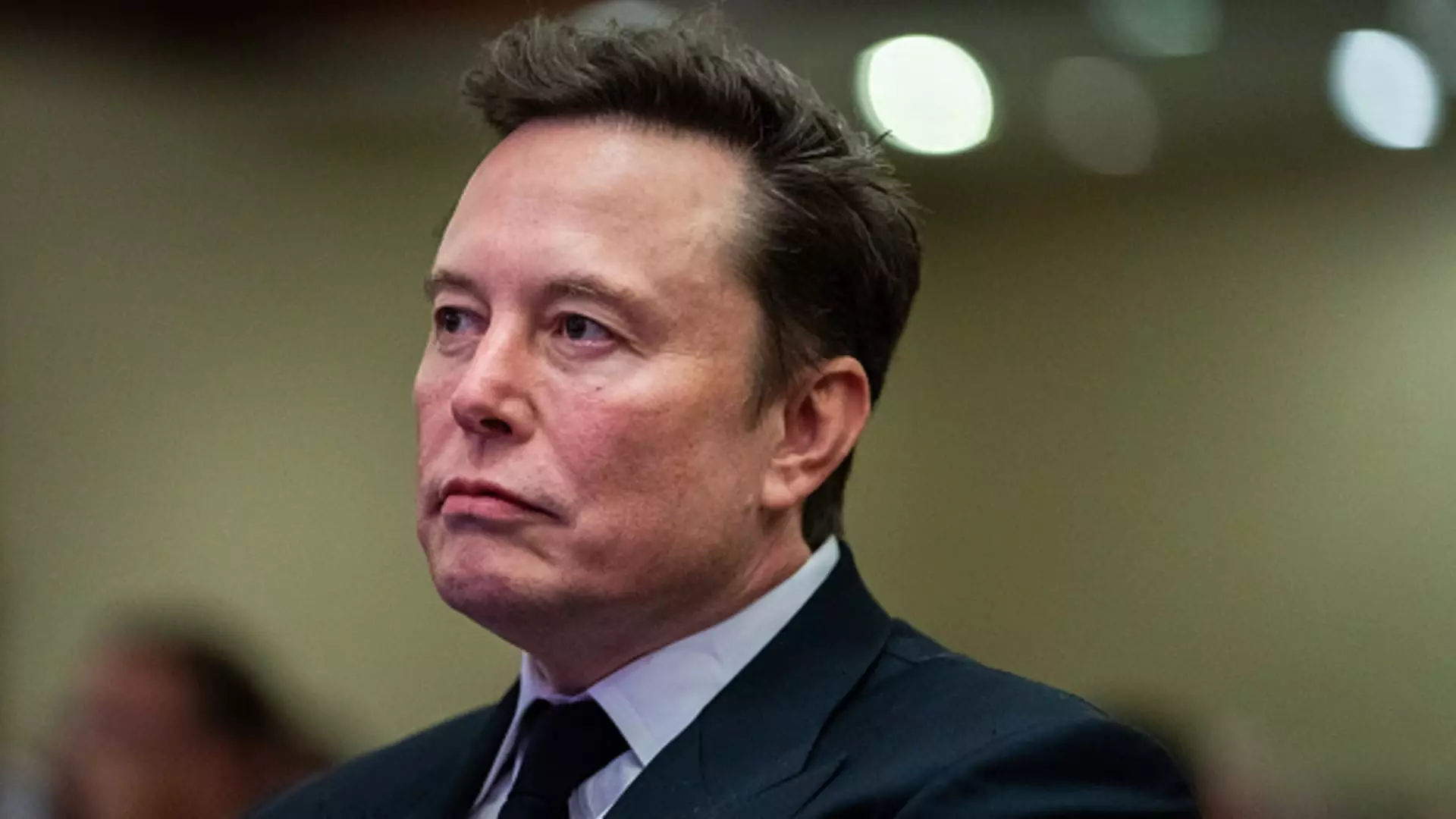In the ever-evolving landscape of technology and finance, few figures are as polarizing as Elon Musk. The billionaire entrepreneur, known for his ventures in electric vehicles, space exploration, and social media, has recently found himself in the crosshairs of the Securities and Exchange Commission (SEC). In a surprise move, the SEC issued a “settlement demand” to Musk, prompting him to reveal details of a contentious situation via social media. This latest development has reignited debates about regulatory oversight, corporate governance, and Musk’s penchant for theatrics online.
The “settlement demand” was not merely a formality; it indicated serious legal implications surrounding Musk’s trading activities connected to Twitter—a deal that has since transformed the platform into what is now known as X. The SEC has reportedly been investigating whether Musk engaged in securities fraud during the tumultuous events of 2022 when he sold Tesla shares while simultaneously amassing a stake in Twitter ahead of a leveraged buyout. Musk’s response, replete with a blend of humor and defiance, might have resonated with some followers while raising eyebrows among legal analysts.
Elon Musk took to X to express his feelings about the SEC’s latest developments, sharing a letter from his attorney, Alex Spiro. The post included tongue-in-cheek commentary, showcasing Musk’s distinctive blend of vulnerability and bravado. “Oh Gary, how could you do this to me?” Musk quipped, seemingly channeling a sense of playfulness even as he faced serious scrutiny. The post featured an AI-generated illustration depicting SEC Chair Gary Gensler as a snail-like figure, amplifying the absurdity of the situation.
However, the light-hearted approach masks a more substantial concern about the SEC’s ongoing scrutiny of his business dealings. The SEC’s demand for a swift settlement, reportedly within 48 hours, puts Musk in a tight spot, leading observers to question whether the timeframe is customary or intended to exert pressure. A source privy to the investigation clarified that while a settlement offer had indeed been made, Musk was afforded an extended response period. The legal machinery of the SEC clearly operates in a complex environment that requires careful navigation by all parties involved.
The SEC’s Investigation: A History of Conflict
Musk and the SEC have a history rife with tension. Back in 2018, Musk faced charges related to his erratic tweets about taking Tesla private, resulting in significant financial penalties and restrictions. Since that incident, Musk has publicly expressed disdain for the regulatory body, framing its actions as harassment. Recently, Spiro’s letter painted a picture of a prolonged campaign against Musk, referring to the “more than six years of harassment” the billionaire has allegedly endured. The reopening of investigations into Musk’s health tech company Neuralink seemed to further underscore this narrative.
The narrative is complicated by political undercurrents. Elon Musk has evolved into a symbol of rebellion against regulatory oversight, and his alignment with Republican figures has positioned him at the intersection of politics, finance, and technology. Such dynamics complicate any analysis of the SEC’s actions, as they may not purely reflect legal considerations but could also be influenced by broader political motivations.
At the core of the SEC investigation lies a significant question: did Musk’s conduct impact shareholders’ decision-making and market integrity? The Oklahoma Firefighters Pension and Retirement System has filed a separate civil lawsuit against Musk, accusing him of purposely concealing his investment strategies concerning Twitter. This lawsuit highlights the broader implications of Musk’s actions on market participants who depend on transparency and reliable information before making critical investment decisions.
The ongoing scrutiny raises valid concerns about the responsibilities of high-profile executives and their communication with the public and their shareholders. Musk’s unfiltered style and propensity for media engagement could have unintended consequences for investor confidence and market stability. The repercussions of this scrutiny might extend beyond individual legal liabilities, potentially influencing regulatory policies and corporate governance standards in the tech industry.
As the legal drama involving Elon Musk and the SEC unfolds, it encapsulates a broader narrative about accountability in the digital age. The battle between innovation and regulation continues to present challenges, particularly when influential figures like Musk push the boundaries of corporate conduct and public sentiment. Whether this latest chapter will conclude with a negotiated settlement or escalate into further legal battles remains to be seen. What is clear, however, is that the world will be watching closely as this saga continues to develop, with implications that reach far beyond one man’s legal entanglements.


Leave a Reply
You must be logged in to post a comment.